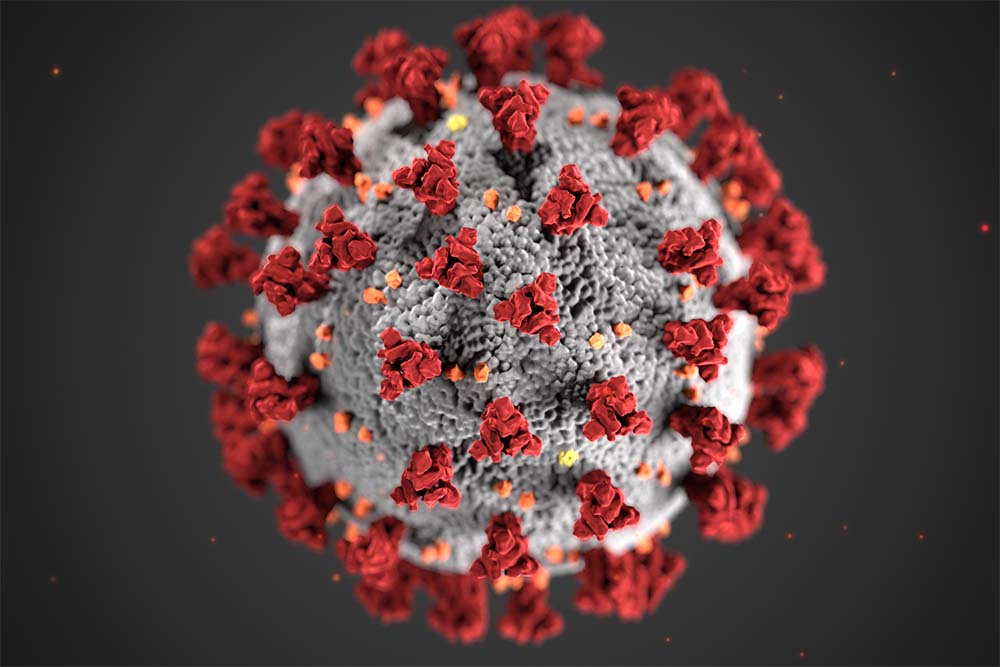
- Details
- By Native News Online Staff
WINDOW ROCK, Ariz. — On Monday, the Navajo Department of Health identified the following 44 communities in the latest Health Advisory Notice, with uncontrolled spread of Covid-19 from Jan. 22, 2021 to Feb. 4, 2021:
|
Aneth Baca/Prewitt Birdsprings* Cameron Chinle Churchrock Coyote Canyon Crownpoint Dennehotso Ganado Indian Wells Iyanbito Jeddito Kaibeto Kayenta |
Leupp Many Farms Mariano Lake Nahatadziil Nahodishgish Nazlini Newcomb Oak Springs* Ramah* Red Lake Rock Springs Rough Rock Sanostee* Sheepsprings Shiprock |
Shonto* Smith Lake St. Michaels Tachee/Blue Gap Teec Nos Pos Thoreau Tohatchi Tsaile/Wheatfields Tsayatoh Tselani/Cottonwood Tuba City Twin Lakes Upper Fruitland Whitehorse Lake* |
* Chapters recently added to the list
“This week we have a slight reduction in the number of communities identified with uncontrolled spread of Covid-19, but we cannot let up now. This is a good indication that the number of new daily cases is flattening, but it doesn’t take much to see a large surge as we’ve seen in the past. The variants being detected in several states are very concerning and all the more reason to continue to take all precautions to stay safe and healthy. Keep staying home as much as possible and always wear a mask or two in public,” said Navajo Nation President Jonathan Nez.
Public Health Emergency Order No. 2021-002 remains in effect with the following provisions:
- Extends the Stay-At-Home order requiring all residents to remain at home 24-hours, seven days a week, with the exceptions of essential workers that must report to work, emergency situations, to obtain essential food, medication, and supplies, tend to livestock, outdoor exercising within the immediate vicinity of your home, wood gathering and hauling with a permit.
- Daily curfew from 9:00 p.m. (MST) until 5:00 a.m. (MST) seven days a week.
- Essential businesses may operate between the hours of 7:00 a.m. (MST) and 8:00 p.m. (MST) daily, including gas stations, grocery stores, convenience stores, hardware stores, laundromats, restaurants, food establishments, banks and similar financial institutions, and hay vendors, provided they comply with provisions outline in the order to help protect employees and the public from Covid-19.
- Refrain from gathering with individuals from outside your immediate household and requiring all residents to wear a mask in public, avoid public gatherings, maintain social (physical) distancing, remain in your vehicle for curb-side and drive-through services.
“Keep fighting this virus together and remain strong. We are making good progress against Covid-19, but we have to stay focused and keep listening to our public health experts. Last week, we had 56 communities identified in the health advisory and this week we have 44. Let’s stay focused and keep doing our part to reduce the spread of Covid-19 in our homes and communities,” said Vice President Myron Lizer.
For more information, including helpful prevention tips, and resources to help stop the spread of Covid-19, visit the Navajo Department of Health's Covid-19 website: http://www.ndoh.navajo-nsn.gov/Covid-19. For Covid-19 related questions and information, call (928) 871-7014.
More Stories Like This
Native News Weekly (August 25, 2024): D.C. BriefsUS Presidents in Their Own Words Concerning American Indians
Ethics Complaint Alleges Former Navajo Nation Chief of Staff Accepted Gifts From Contractor
Monday Morning (December 14, 2025): Articles You May Have Missed This Past Weekend
Native News Weekly (December 14, 2025): D.C. Briefs
Help us defend tribal sovereignty.
At Native News Online, our mission is rooted in telling the stories that strengthen sovereignty and uplift Indigenous voices — not just at year’s end, but every single day.
Because of your generosity last year, we were able to keep our reporters on the ground in tribal communities, at national gatherings and in the halls of Congress — covering the issues that matter most to Indian Country: sovereignty, culture, education, health and economic opportunity.
That support sustained us through a tough year in 2025. Now, as we look to the year ahead, we need your help right now to ensure warrior journalism remains strong — reporting that defends tribal sovereignty, amplifies Native truth, and holds power accountable.
 The stakes couldn't be higher. Your support keeps Native voices heard, Native stories told and Native sovereignty defended.
The stakes couldn't be higher. Your support keeps Native voices heard, Native stories told and Native sovereignty defended.
Stand with Warrior Journalism today.
Levi Rickert (Potawatomi), Editor & Publisher

